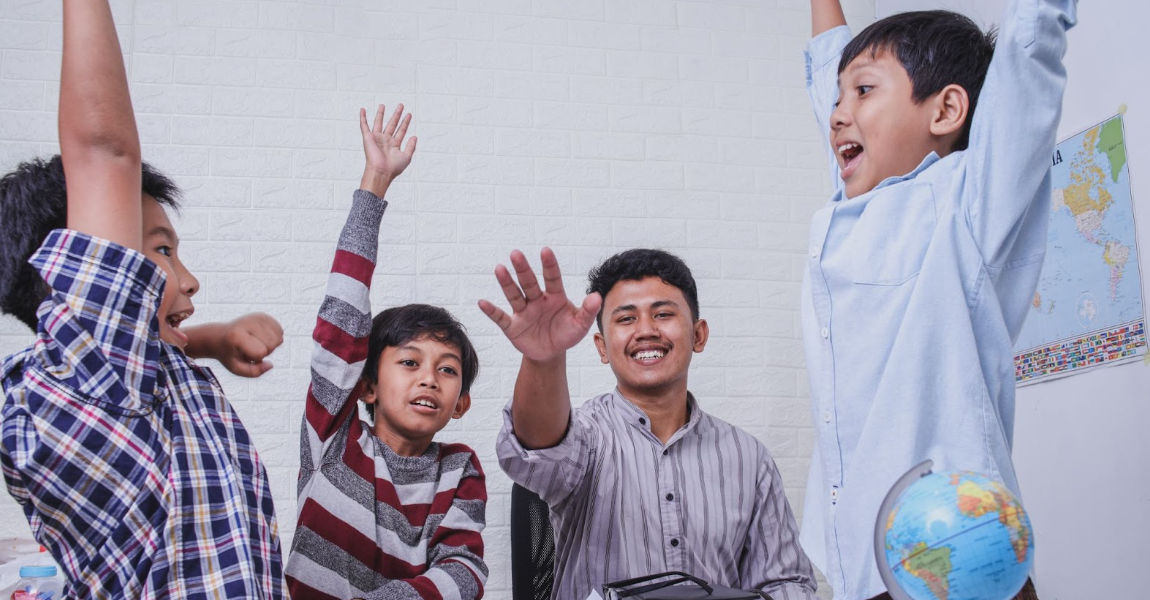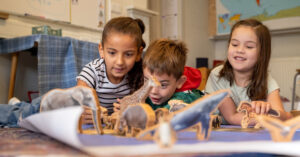Is a Micro school in Pune Right for Your Child? Here’s What Parents Should Know

Education in the 21st century is rapidly evolving, and so are the needs of learners. As traditional classroom models face increasing scrutiny, many parents are searching for learning environments that go beyond textbooks and standardized tests. Enter the microschool—a small, personalized, and future-forward educational approach that’s reshaping how children learn. And in a progressive city like Pune, this movement is gaining momentum.
If you’re wondering whether a microschool is the right fit for your child, this comprehensive guide will help you understand the concept, its benefits, and how it compares to the best schools in Pune.
What Is a Microschool?
A microschool is a modern reimagining of the one-room schoolhouse. Typically consisting of fewer than 150 students, microschools offer personalized, flexible, and learner-directed education in a close-knit setting. They operate with a strong focus on individual growth, creativity, and holistic development rather than one-size-fits-all curricula.
Microschools often draw on progressive educational philosophies, including the Montessori method, project-based learning, and experiential education—making them particularly appealing to families who want something more than traditional schooling.
Why Pune Is a Fertile Ground for Microschools
Pune has long been known as the “Oxford of the East” and is home to some of India’s top schools and colleges. It attracts educated, globally aware families who are actively engaged in their children’s education. As work culture shifts, with more parents working remotely and valuing flexibility, microschools offer a compelling alternative.
Dreamtime Learning Hub: A Unique Microschool in Pune
At Dreamtime Learning Hub, our microschool is not just about academics—it’s about nurturing a lifelong love for learning.
Key Features That Set Us Apart:
1. Montessori-Inspired Learning
We follow a globally informed, Montessori-inspired approach that focuses on hands-on experiences, self-paced learning, and respect for the child’s individuality.
2. Small Group, Personalized Attention
With a low student-to-educator ratio, learners receive individualized attention and guidance—allowing them to explore subjects in depth and at their own pace.
3. Experiential & Project-Based Curriculum
Instead of rote memorization, our learners engage with real-world projects that teach collaboration, problem-solving, and critical thinking.
4. Mixed-Age Classrooms
Children learn together across age groups, developing empathy, leadership, and peer learning skills in a natural and inclusive environment.
5. Focus on Social and Emotional Learning
We believe that emotional intelligence is just as important as academic achievement. Mindfulness, empathy, and self-regulation are core to our daily learning practice.
Who Thrives in a Microschool?
Microschools are particularly well-suited for:
- Curious and self-driven learners
- Children who feel lost or overwhelmed in large classrooms
- Families seeking flexibility in learning schedules
- Parents who value emotional growth as much as academic success
- Learners with unique learning styles or diverse interests
If your child loves to ask questions, needs a more nurturing environment, or learns best by doing, a microschool could be the ideal place for them to flourish.
Frequently Asked Questions (FAQs)
Based on common SERP (Search Engine Results Page) queries from parents in Pune, here are some of the top questions answered:
What is a microschool and how is it different from traditional schools?
A microschool is a small, learner-centered school focused on personalized education, mixed-age learning, and real-world engagement. Unlike traditional schools that often emphasize exams and uniformity, microschools provide flexible curricula tailored to each learner.
Is Dreamtime Learning Hub an international Montessori school in Pune?
Yes, we are inspired by international Montessori principles, focusing on independence, creativity, and holistic development. However, we also incorporate other global educational models, including experiential and project-based learning.
How does a microschool compare to the best schools in Pune?
While top schools in Pune offer structured academic programs, microschools like Dreamtime prioritize flexibility, learner engagement, emotional well-being, and future-ready skills.
Are microschools recognized academically?
Yes. Many microschools, including Dreamtime, align with national and international standards such as IGCSE, IB, and NIOS. Learners receive strong academic foundations alongside life skills.
What is the ideal age for enrolling in a microschool?
Microschools typically serve children from ages 3 to 14, though this may vary. Dreamtime welcomes learners across various age groups with developmentally appropriate learning environments.
What trends are emerging among parents searching for alternative education in Pune?
Recent SERP trends show growing interest in:
- Best Montessori schools in Pune
- Personalized learning schools
- Top alternative schools in Pune
- Child-led education models
- Schools that support emotional intelligence
Final Thoughts: Rethinking What School Should Be
If you’ve been looking beyond school rankings and exam results—toward an education that nurtures creativity, confidence, and curiosity—then a microschool in Pune like Dreamtime Learning Hub may be the right choice.
We believe that every child deserves to be seen, heard, and supported in their learning journey. With our innovative model, small class sizes, and commitment to holistic education, we are proud to be at the forefront of educational transformation in Pune.
Let's Talk
Share this Articles




